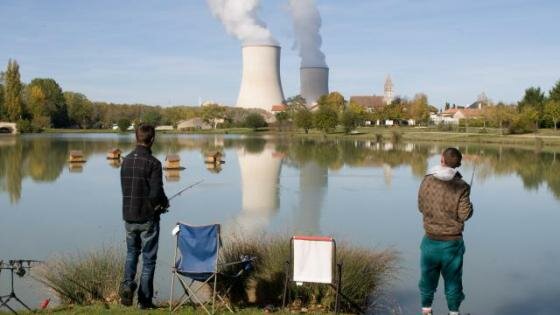A commonly accepted, by the member states and the European Commission, agreement on the text amending the Community framework for nuclear safety (2009/71/EURATOM) was endorsed today by the Permanent Representatives Committee of the Council. The agreement for this new Directive was reached under the Greek Presidency, after delicate and strenuous negotiation, since the safety of nuclear installations is for member states an important matter of national sovereignty.
The new Directive puts safety on the spot, taking into account lessons learned from past nuclear accidents and international cooperation. For the first time a legally binding “safety objective” is set in the regulatory framework for nuclear installations in Europe, existing or new ones. The new nuclear safety architecture (a) provides that member states implement a regulatory framework requiring accident prevention, and should an accident occur, mitigating the consequences of radioactive releases (b) reinforces crucial components of the nuclear safety system, such as the independent role and function of the regulatory authorities, the safety peer reviews mechanism and the promotion of safety culture.
Specifically, the Directive:
• introduces higher standards for nuclear safety in Europe, as it requires that member states take prevention measures for any type of accident, no matter how much unlikely may be considered,
• introduces topical peer reviews of the nuclear installations throughout Europe every six years, in coordination among member states. The first topical peer review is scheduled for 2017,
• requires operators to have infrastructure and suitable arrangements for accident management and emergency response,
• requires the strengthening of the role, function and effective independence of the regulatory authorities,
• introduces for member states the legal requirement to promote and enhance nuclear safety culture,
• introduces requirements on transparency, public information, public participation and cooperation between member states, nuclear and non-nuclear, in the vicinity of nuclear installations.
The Chairman of the Greek Atomic Energy Commission (EEAE), Christos Housiadas, commented: "The Greek Presidency managed to achieve what six months ago seemed extremely difficult: a new European agreement on the framework ruling the safety of nuclear installations in Europe. An agreement that demonstrates the reflexes of the EU and its member states to the universal request for not having in Europe a nuclear accident. All member states, nuclear and non-nuclear, had an equal opportunity to participate in this negotiation, as the consequences of nuclear accidents do not stop at borders."
The amendment of the current framework for nuclear safety was proposed by the European Commission in the wake of the nuclear accident in Fukushima and the stress tests conducted at nuclear power plants in Europe in the period 2011-2012.








